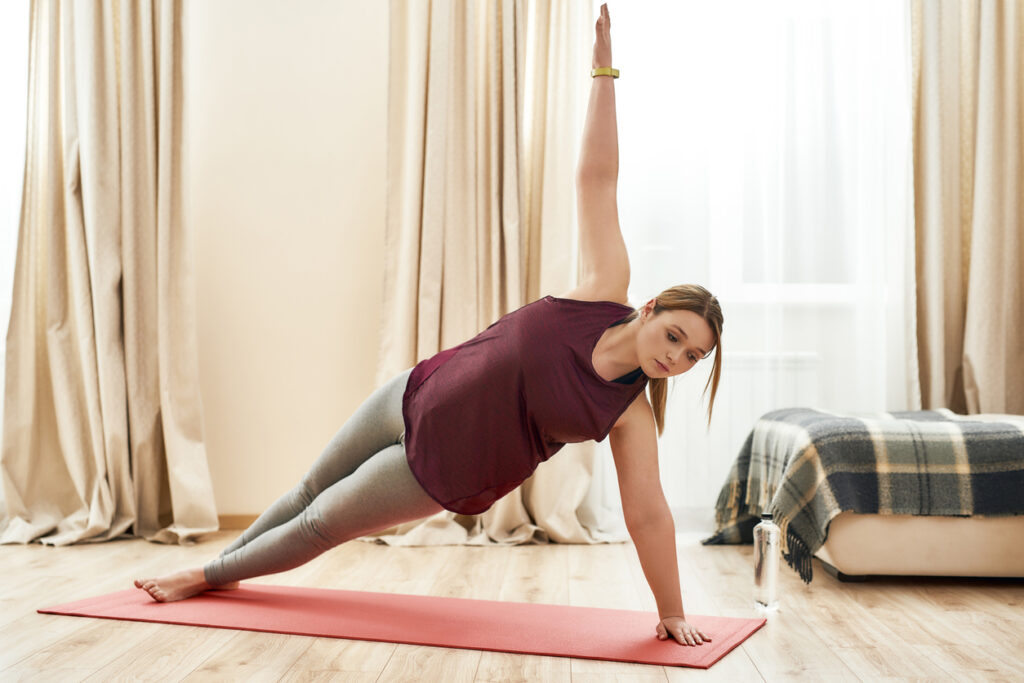Teen depression is a complex disease that doesn’t always respond to traditional therapeutic approaches. Many mental health treatment providers use a trial-and-error approach to establish what works and what doesn’t for each client. Initially, the therapies treatment centers use include antidepressant medications and talk therapy, such as cognitive behavioral therapy (CBT).
Complementary approaches like exercise also can be important tools to help manage depression in adolescents. Exercise can offer relief from depression symptoms by stimulating neurological pathways, reducing inflammation, and promoting self-esteem and social engagement.
There are many factors linked to mental health disorders, including family history and socioeconomic status, but exercise is one factor teens can control. Studies show people with a genetic propensity toward depression who exercise regularly are no more likely to develop depression than those without a genetic predisposition.
Who Will Benefit From Exercise Therapy?
Do all depressed teens benefit from exercise in the same way? A new precision medicine study published in the journal Psychological Medicine shows it may be possible to predict who would benefit from a combination of exercise and behavioral therapy. These findings could help depression treatment providers streamline treatment plans, incorporating the approaches that are most likely to benefit the adolescent.
The study assessed two aspects of brain function that are impaired in young people with depression and other mental health disorders:
- Cognitive control, which allows an adolescent to change their behavior in order to achieve goals and resist distractions; and
- Reward processing, or the way a young person responds to rewarding activities (i.e., the ability or inability to feel pleasure).
Participants who exercised three times a week for eight weeks experienced fewer depressive symptoms. Those who did moderate-intensity aerobic exercise benefited the most, with symptoms reduced by 55 percent. Those who did light-intensity stretching also benefited, with a 33 percent reduction in depression symptoms.
Aerobic exercise didn’t impact reward processing or cognitive control. However, the researchers found that people with better reward processing when the study began responded best to exercise treatment. This means teens who can still enjoy pleasant experiences may respond best to having exercise as part of their depression treatment plan.
Exercise is especially important for teens because many mental health disorders begin to emerge during adolescence. At the same time, sedentary behavior increases, particularly between the ages of 12 and 16. This tendency toward sedentary behavior is especially common among girls, who are three times more likely to struggle with depression.
How Much Exercise Is Enough?
The World Health Organization (WHO) recommends one hour of moderate to vigorous exercise every day. This is in addition to the activity teens engage in at school. Recent research supports this guidance:
- One hour of light activity each day at age 12 can lead to a 10% reduction in depression at age 18. Activities can range from running and walking to doing chores, painting, or playing a musical instrument. Depression scores were highest among the teens who were least active. Each additional hour of sitting at age 12 was linked to an 11% increase in depression scores at age 18.
- A 2019 study found that young people who don’t exercise at all are twice as likely to have depression, anxiety or other mental health disorders, compared to those who meet exercise guidelines.
The WHO’s guidelines sound simple, but in practice are rarely met. In a study of teens in 10 countries, researchers found only about 13% met the WHO’s recommended guidelines.
If an hour per day isn’t feasible, the good news is recent studies show even light exercise has dramatic benefits for teen mental health. Exercising just one to three days a week has been linked to lower rates of depression and anxiety.
Ways to Incorporate Exercise Into Teens’ Lives
It can be difficult to pull adolescents away from their screens and find outlets for daily exercise. Here are a few ways to incorporate more physical activity into their routine:
Healthier Homework Routines
Teens can do their homework at a standing desk or set reminders for regular stretching breaks.
Household Chores
Helping around the house is a great way to incorporate light activity into the day, in addition to teaching teens responsibility and the value of contributing to the family. Some examples of active chores are walking the dog, washing dishes, watering plants, or putting away laundry.
Exercise Circuits
Set up stations for different exercises around the house and challenge teens to meet certain milestones like seeing how many jumping jacks or sit-ups they can do in a minute.
Team Sports
Sports are a great outlet for exercise, but research shows playing on a team has an added mental health bonus as a social outlet, especially for girls. Sports can help teach leadership, confidence, and teamwork. Physical activity also sets teens up for a good night’s sleep, which has additional mental health benefits.
Extracurricular Activities
These can be vigorous physical activities, such as dancing, running, or swimming, or they can be simpler forms of movement like drama, photography, film production, ceramics, or volunteer work. Research shows some activity is better than no activity.
For pre-teens and teens who have sedentary lives, it’s time to make a change. Rates of teen depression increased by 52 percent between 2005 and 2017. Likewise, teen suicide rates are up. The number of young people with suicidal thoughts who went to the emergency room doubled between 2007 and 2015. A few simple adjustments now can make a long-term difference in teens’ mental health.
































































